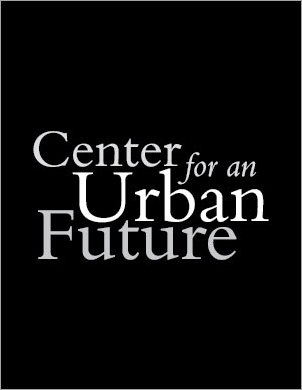Monday, September 26th 2011, 8:00 am to 12:30 pm
NYU Kimmel Center for University Life
60 Washington Square South
Decades of research have shown cash and similar incentives can have positive effects in improving the lives of low-income people. Incentive strategies have been used, and studied, across a wide variety of programs; examples range from earned income tax credits, earning supplements in welfare-to-work programs, rent incentives in public housing, and training and retention incentives in work advancement programs to performance-based scholarships in community colleges and incentives to lose weight or quit smoking. The results have been consistent: paying for something can be a remarkably effective way of getting it.
At the same time, financial incentives remain hotly debated. Why pay people for what they should do on their own? Don't financial incentives undermine intrinsic motivation? Do their effects last? Are they worth the cost?
This conference, co-sponsored by MDRC, NYU Wagner, and the Center for an Urban Future, will bring together leading experts and government officials to discuss what has been learned about incentives over the past decades of wide experimentation, how they're being implemented now, whether these financial incentive programs really work, and how they can be improved. Presenters will propose concrete reform ideas for the next generation of policy development at the city and state levels, particularly for the relatively new gubernatorial administrations in New York, New Jersey, and Connecticut � all within the context of the �new normal� of budgetary constraints.
Made possible with support from the Altman Foundation and the Rockefeller Brothers Fund.
Agenda
8:00-8:30 am - Breakfast and Registration
8:30-9:30 am - Opening and OverviewEllen Schall, Dean, New York University's Robert F. Wagner Graduate School of Public Service
Nirav R. Shah, New York State Health Commissioner
Gordon Berlin, President, MDRC
Jonathan Bowles, Executive Director, Center for an Urban Future
9:40-11:00 am - Panel 1: Can Incentives Alleviate Poverty?
In partnership with MDRC, New York City is a leading innovator in developing and testing the effects of financial incentives in the workforce. This panel will focus on two projects: (1) Opportunity NYC, the first conditional cash transfer program in a developed country, which is incentivizing efforts and achievements in children's education, family preventive health care practices, and parents' employment; and (2) Jobs-Plus, the replication of a successful work-focused rent incentive program in public housing. Through the lens of these initiatives, the panel will discuss what works, what doesn't, and what policymakers should consider as they refine their approaches to financial incentives.
Panelists:
Richard Buery, President and CEO, Children's Aid Society
James Riccio, Director, MDRC's Low-Wage Workers and Communities Policy Area
Dan Rosenbaum, Senior Economist, federal Office of Management and Budget
Veronica White, Executive Director, NYC Center for Economic Opportunity
Moderated by Tina Rosenberg, The New York Times
11:10 am-12:30 pm - Panel 2: Can Incentives Make People Healthy?
The largest influences on health are the decisions that one makes in the course of daily life� what foods to eat or avoid; whether to smoke, drink alcohol, or take drugs; and whether to take prescription medications, to name just a few. These decisions can have deleterious impacts on personal health and lead to ballooning health care and other costs for the nation. This panel will assess a broad range of bold, new approaches in the area of health and public health to encourage, nudge, and even pay individuals to make better choices that improve their well-being and positively influence public-sector costs.
Panelists:
Joann Casado, Executive Director, The Bronx Health Link
Brian Elbel, Assistant Professor of Medicine and Health Policy, NYU School of Medicine
Nicholas Freudenberg, Distinguished Professor, Urban Public Health, Hunter College
Kevin Volpp, Professor of Medicine and Health Care Management, Director of the Center for Health Incentives, University of Pennsylvania
Moderated by Ben Barnes, Secretary of the State of Connecticut Office of Policy and Management, and NYU Wagner alumnus
About the Sponsors
New York University's Robert F. Wagner Graduate School of Public Service is a leadership school of public service with a faculty of thought leaders who reframe the way people understand and act on issues of public importance, and graduates who are bold, well-prepared change makers who produce results that matter. NYU Wagner offers advanced programs leading to the professional degrees of Master of Public Administration, Master of Urban Planning, Executive Master of Public Administration, and Doctor of Philosophy.
MDRC is a nonprofit, nonpartisan research organization based in New York City with nearly 40 years of experience designing and evaluating education and social policy initiatives.
The Center for an Urban Future is a New York City-based think tank devoted to shining a light on the critical opportunities and challenges facing New York, and engaging policymakers with workable solutions and fresh ideas. The Center's primary focus is on growing and diversifying the city's economy, expanding economic opportunity and targeting problems facing low-income and working-class neighborhoods.
We thank Wagner Economics and Finance Association for their assistance in supporting this event.


